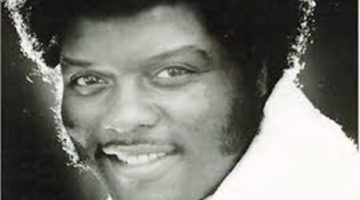 As children, we run to our mothers with our problems and our hurts and for help in understanding life’s denials and demands. Mothers give us advice and, too often, we don’t listen.
As children, we run to our mothers with our problems and our hurts and for help in understanding life’s denials and demands. Mothers give us advice and, too often, we don’t listen.
But as a rule, good mothers tend to watch us even when we don’t know they are watching. This starts during babyhood. They watch to see if we’re hungry, wet or sleepy. Once they make the observation, they immediately take corrective measures.
Sometimes mothers demand maturity of us before we think we are ready. This might have been the case at Jesus’ cousin’s wedding at Cana in John 2:3: “When they ran out of wine, (Mary) the mother of Jesus said to Him, ‘They have no wine.’”
As an observant mother, Mary makes Christ aware of a potentially embarrassing problem for the family and the difficulty they face. Often we find ourselves in the midst of problems, thinking we’ve planned well and have all contingencies covered, but instead fall short of resources.
Mary, in her request, might not have expected a miracle but, rather, since Jesus’ father, Joseph, was deceased, perhaps He could offer an apology or make a statement that would save the bridegroom’s reputation and the family from embarrassment.
Jesus’ response seemed curt and disrespectful: “Woman, what does your concern have to do with me? My hour has not yet come.” But, according to Matthew Henry’s commentary, Christ’s reply to his mother had no disrespect in it, for Christ addressed her using the same words from the cross, with affection. He said, in John 19:26, “Woman, behold your son,” meaning behold the disciple John his friend, whom He charged with caring for her after His death.
In Christ’s response to His mother, she is reminded, as we are, that men and women are frail and foolish and corrupt. His response was a check-yourself moment reminding her, and us, that we are not to interfere in matters which require acts of God. As a human, Christ was the earthly son of Mary but as the Son of God on earth He was also her Lord.
This incident was instructive to Mary, and should be to us, that a relationship with God demands our objectivity above and beyond family matters. Christ was, and we are to be, dedicated servants of God, without preferential treatment toward earthly ties.
This passage is confusing, complex and conflicting. What do we do then when faced
with conflicting demands from mother and God? How do we reconcile the two? Mary’s role in the story is difficult to understand and although she didn’t know or understand what Jesus would do, she trusted Him to do what was right. Herein lies Christ’s struggle: “Do I listen to my Mother or do I wait to see what God (My Father) is going to do?”
In everything, Christ knew there were eternal moments which held eternal impacts and yielded a fixed and fittest time to do something and He strictly observed this principle. Initially, it appeared the hour for His first miracle had not yet arrived. Apparently the thought occured to Him, “God may be using Mother to tell me what time it is. Maybe I should listen to her.”
What I love about this story is that Mary takes the reproof very submissively and made no response to Christ. She quit exerting any influence upon Him and made no further intercession in the matter. She simply told the servants, “Do whatever He tells you.”
When we bring problems to our mothers, or they point out problems to us, we need to stop, think and pray on what to do. When we bring problems to Christ, we should submit and remember He may have a completely different plan for us than that of our mother’s. And, like Mary, we too should submit and allow Christ to deal with the problem and, then like Christ, we too may find that, through prayer, it is wise to listen to Mother.
The Rev. Dr. R. Joaquin Willis is pastor of the Church of the Open Door at in Miami’s Liberty City community. He may be reached at 305-759-0373 or pastor@churchoftheopendoormiami.org












No Comment